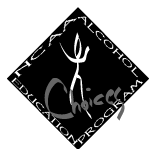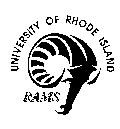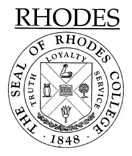The NCAA News - News and FeaturesMay 18, 1998
Ten institutions selected for CHOICES program grants
Student-athletes are integrally involved in all of the 10 programs selected this year at NCAA institutions to receive CHOICES program grants.
The grants, totaling nearly $276,000, bring to 77 the total number of grants awarded since the CHOICES program began in 1991. Approximately $1.1 million has been awarded to institutions since then.
 This is the first year that grants have been extended on a three-year basis. The amount of the grants decreases from $15,000 the first year to $10,000 the second year and $5,000 the third year. The new approach is designed to encourage the institution to assume greater responsibility for maintaining the program.
This is the first year that grants have been extended on a three-year basis. The amount of the grants decreases from $15,000 the first year to $10,000 the second year and $5,000 the third year. The new approach is designed to encourage the institution to assume greater responsibility for maintaining the program.
Also new this year is a program evaluation component conducted by the Minnesota Institute for Public Health, which will look at past and current programs to determine whether CHOICES is fulfilling its mission and to determine whether institutions that have received grants in the past have continued their commitment to alcohol education.
The CHOICES program seeks to encourage NCAA institutions and conferences to implement and evaluate alcohol-education programs. Funded programs are designed to work toward the elimination of illegal and excessive consumption of alcohol on college campuses.
The use of alcohol by college students who are under the legal drinking age and the misuse of alcohol by students for whom alcohol is a legal substance continue to be of concern to program administrators.
The NCAA Foundation awards CHOICES grants with support from Anheuser-Busch Companies, Inc. The NCAA education services group is responsible for administration of CHOICES, which recently has focused on implementation of campus programs.
All of the 10 newly funded programs feature peer-education components in which student-athletes and other students receive training to lead teammates and classmates in discussions promoting alcohol education.
Many of the programs also feature such elements as media campaigns, community outreach and events offering alternatives to alcohol use.
All of the programs have characteristics that have been common in CHOICES. They are campus-wide in focus and built around athletics events, activities and/or personalities. All also emphasize, in some way, the choices students must make about alcohol use.
Recipients of the latest CHOICES grants (and the amounts of the grants) are the California Institute of Technology ($19,657); Fort Hays State University ($29,860); New Mexico State University ($20,700); Pennsylvania State University ($28,479); the University of Rhode Island ($30,000); Rhodes College ($28,000); Saginaw Valley State University ($30,000); Sweet Briar College ($30,000); Texas Christian University ($29,060); and the University of Wisconsin, Whitewater ($30,000).
Application forms for CHOICES grants to be awarded in 1999 will be mailed to member institutions in October. The forms and grant guidelines will be sent to athletics directors, chief executive officers and directors of student affairs.
The deadline for applications will be in February 1999.
The 10 newly funded CHOICES programs are below.
CHOICES California Institute of Technology
 The CHOICES Program at Cal Tech will expand upon existing alcohol-education services and implement new programs in an effort to increase undergraduate students' awareness of alcohol-abuse issues; help students recognize the range of drinking patterns on campus; help students make healthier decisions for themselves regarding the use of alcohol; and provide an alcohol-free social event as an alternative to campus parties with alcohol.
The CHOICES Program at Cal Tech will expand upon existing alcohol-education services and implement new programs in an effort to increase undergraduate students' awareness of alcohol-abuse issues; help students recognize the range of drinking patterns on campus; help students make healthier decisions for themselves regarding the use of alcohol; and provide an alcohol-free social event as an alternative to campus parties with alcohol.
The program will feature four primary components, including extensive alcohol-education training of peer mentors involved in the school's Athletic Council for Mentoring and Education group, and a "Challenges and CHOICES" program through the Student Counseling Center, which assists new undergraduate students in adjusting to college life.
Fresh CHOICES Fort Hays State University
Fort Hays State's Fresh CHOICES program will feature five components:

"Talking Fresh," a peer-education program that will engage students in an innovative alcohol-education and behavior-change program;
"Get Fresh at Athletics Events," which will feature signage and other methods of dispensing alcohol-education materials, and half-time shows featuring athletics personalities making appeals for responsible behavior;
"Fresh CHOICES for Old Problems," which relies on peer educators to address problems related to underage drinking and binge drinking in fraternities and sororities;
"Fresh CHOICES in High-Tech," featuring the CD-ROM game entitled Alcohol 101; and
"Get Fresh/Get Money," which will fund students' innovative alcohol-education campaigns.
CHOICES New Mexico State University
 New Mexico State plans to enhance students' decision-making abilities regarding the use of alcohol through a high-visibility media campaign integrated into existing athletics department materials.
New Mexico State plans to enhance students' decision-making abilities regarding the use of alcohol through a high-visibility media campaign integrated into existing athletics department materials.
A select group of peer educators from athletics and other campus departments will be trained in program design and delivery and alcohol-related decision making. The resulting peer program will be delivered to classes, organizations, athletics teams, policy violators and others.
Students, both athletes and nonathletes, will be involved in all aspects of the design, delivery and evaluation of the program.
The Challenge of Social CHOICES Pennsylvania State University
 The primary goal of Penn State's program is to train stu-dent-athletes and other peer leaders in negating the acceptance of alcohol misuse on campus and in the community. Student-athletes, because of their visibility and leadership within the university community, can oppose social norms that condone alcohol misuse and set standards for the responsible use of alcohol.
The primary goal of Penn State's program is to train stu-dent-athletes and other peer leaders in negating the acceptance of alcohol misuse on campus and in the community. Student-athletes, because of their visibility and leadership within the university community, can oppose social norms that condone alcohol misuse and set standards for the responsible use of alcohol.
The project will build upon current activity in athletics, add to it the development of a peer advocacy program, and develop and implement an alcohol-free media campaign.
Program administrators expect that coaches will report an increased commitment by student-athletes to talk to each other about high-risk issues, and that spectators at Penn State athletics events will be able to identify the commitment by both the university and the athletics department to the prevention of alcohol abuse.
Ram CHOICES University of Rhode Island
 Rhode Island's RAM (Responsible Alcohol Management) CHOICES program will allow student-athletes to earn up to six academic credits for their participation.
Rhode Island's RAM (Responsible Alcohol Management) CHOICES program will allow student-athletes to earn up to six academic credits for their participation.
As part of the RAM CHOICES Team, student-athletes will take part in an intensive orientation session in September, then combine team-building activities with a core curriculum that addresses the physical, psychological and social consequences of alcohol abuse. Student-athletes also will learn listening and interviewing skills, along with coping skills such as stress reduction, conflict resolution and anger management.
Designated team "coaches," including staff from the university's substance abuse education program, graduate students and the wellness coordinator, will train athlete peer mentors to further enhance skills and knowledge, emphasize key points, and provide support and supervision in working with various athletics teams.
Timeout for CHOICES Rhodes College
 "Timeout for CHOICES" intends to challenge the entire Rhodes community to "make the right call" regarding the use of alcohol. Utilizing the strength of peer influence, the program seeks to change the social and cultural environment in which students make decisions about alcohol.
"Timeout for CHOICES" intends to challenge the entire Rhodes community to "make the right call" regarding the use of alcohol. Utilizing the strength of peer influence, the program seeks to change the social and cultural environment in which students make decisions about alcohol.
The program will target student-athletes, coaches and athletics support staff the first year, then expand the target area to local elementary, middle and high schools, and eventually the entire Memphis community.
One of the program's components geared toward student-athletes is called "Saturday Night Sports Fever," a monthly alcohol-free social alternative that provides a tournament format for a different sport each month in which teams can earn points toward winning a grand prize.
Cardinal CHOICES Saginaw Valley State University
 Saginaw Valley State will use the Student-Athlete Questionnaire and the Core Survey to gain information about baseline behaviors and attitudes of student-athletes, resident students and the general student population related to alcohol education. Those results will allow an examination of year-to-year trends in students' alcohol use, which will be valuable in assessing the impact of policies and programs.
Saginaw Valley State will use the Student-Athlete Questionnaire and the Core Survey to gain information about baseline behaviors and attitudes of student-athletes, resident students and the general student population related to alcohol education. Those results will allow an examination of year-to-year trends in students' alcohol use, which will be valuable in assessing the impact of policies and programs.
In addition, the school's student-athlete advisory committee will select a minimum of one student-athlete per athletics team to participate in the Cardinal CHOICES program. An alcohol-awareness program also will be implemented, and CHOICES also will sponsor a minimum of three alcohol-free social activities per semester.
The school also will develop a task force composed of students, staff and faculty to review current alcohol-use policies.
CHOICES for Peak Performance Sweet Briar College
 Sweet Briar will use its CHOICES grant to encourage student-athlete leaders to become more involved in changing campus and community attitudes toward alcohol use and abuse. The program will combine with the school's existing Student-Athlete Mentor Program to seek a pledge of "peak performance" and educational outreach from every varsity athlete.
Sweet Briar will use its CHOICES grant to encourage student-athlete leaders to become more involved in changing campus and community attitudes toward alcohol use and abuse. The program will combine with the school's existing Student-Athlete Mentor Program to seek a pledge of "peak performance" and educational outreach from every varsity athlete.
CHOICES for Peak Performance also will collaborate with other student programs such as the Sweet Briar Peer Health Educators and Advocates, the Sweet Briar Outdoor Program and the Office of Co-Curricular Life. The initiative will train student-athlete leaders in a range of health and leadership topics, particularly in alcohol education.
The college has agreed to make more than $53,000 in matching contributions (in cash and in kind) to support implementation of the CHOICES program.
Winning CHOICES Texas Christian University
Winning CHOICES is designed to encourage abstinence for underage students and to promote responsible decision-making skills for students of legal drinking age. The core of the program features special events, peer education, a speakers bureau, community outreach, a social marketing campaign and orientation programming to deliver responsible alcohol-use messages to the Texas Christian community.
 The program will recruit two student-athletes from each athletics team to participate in the certified peer-education training developed by BACCHUS and GAMMA Peer Education Network. A Winning CHOICES retreat has been scheduled for the second year of the program, which will develop group cohesion and a continued commitment to prevention efforts.
The program will recruit two student-athletes from each athletics team to participate in the certified peer-education training developed by BACCHUS and GAMMA Peer Education Network. A Winning CHOICES retreat has been scheduled for the second year of the program, which will develop group cohesion and a continued commitment to prevention efforts.
Other initiatives include a campus-wide media campaign using the student newspaper, the campus magazine and the weekly university newsletter in an effort to change perceptions on campus by communicating actual norms.
Warhawks Educated for Alcohol CHOICES University of Wisconsin, Whitewater
Wisconsin-Whitewater's program objectives were developed from recommendations made for colleges and universities by the National Clearinghouse of Alcohol and Drug Information. Those objectives include:

Developing positive and educated role models;
Using prevention messages in various mediums;
Providing students with alternate activities to drinking;
Integrating alcohol education into the curriculum and faculty/staff/student research initiatives;
Investigating campus and community perception of alcohol use and abuse; and
Enhancing the image of athletics within the campus and community environments by presenting athletics as a partner in alcohol education.
The program will augment the school's comprehensive alcohol and other-drug plan with multiple innovative strategies that otherwise could not have been implemented.
|